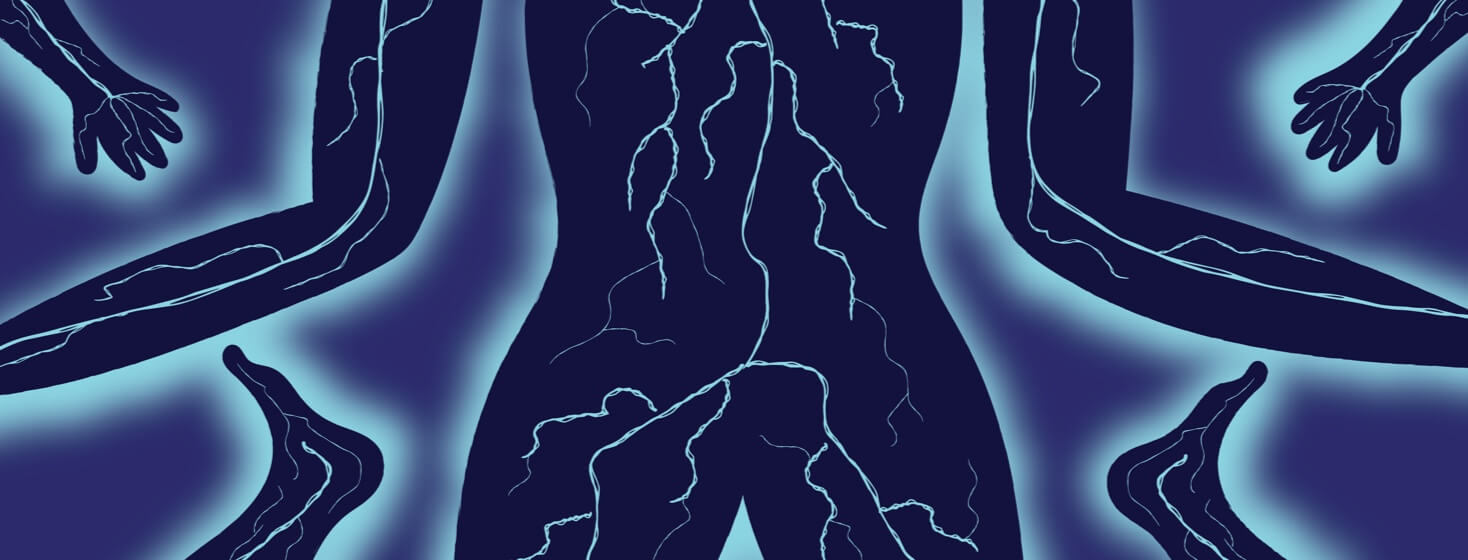Neuropathic Pain and Bladder Cancer
After treatment for bladder cancer, while the experience of cancer treatment might be over, it is not uncommon to still be dealing with neuropathic pain long after treatment ends. The various treatments used in treating bladder cancer – surgery, biological therapy, chemotherapy, and radiation therapy – may cause side effects that can linger after treatment ends.
Taking any kind of pain or discomfort seriously is important so that you can get treatment for it and manage it in order to improve your quality of life and alleviate symptoms.
What is neuropathic pain?
Neuropathic pain has been defined in many ways. Still, the most commonly accepted definition is "pain caused by a lesion or disease of the somatosensory system."1
The somatosensory system allows someone to perceive touch, pressure, pain, temperature, movement, and more. Nerves of this system are found in the skin, muscles, joints, and connective tissue and send signals to the spinal cord, which are then sent to the brain for processing. When there are lesions on any of these nerves, this can cause distortions of these signals, including pain. Among people who have undergone cancer treatment, neuropathic cancer pain may occur.1
While neuropathic cancer pain (NCP) is a serious problem in the cancer community, data and evidence about NCP are limited, and much of the information comes from neuropathic pain studies. More research is being done that focuses on NCP, building off of what is known about general neuropathic pain.2
Neuropathic pain and cancer
Cancer pain is often a significant problem, both during and even after cancer treatment. Neuropathic cancer pain (NCP) may occur from damage to nerves from diagnostic or therapeutic interventions or even the cancer itself. Chemotherapy, radiation therapy, and surgery can all contribute to possible NCP. As survival rates have improved, NCP has become common.2,3
It is estimated that between 18.7 percent and 21.4 percent of people with cancer have NCP. They may also have associated pain syndromes as well. NCP is typically described as a burning-like sensation or sharp, stabbing pain and is mostly felt at night. NCP can also be observed with motor deficits, bladder dysfunction, sensory loss, and other issues. All of these can contribute to reduced quality of life and make everyday activities more difficult.2
Treatment of neuropathic cancer pain
There are no drugs to prevent NCP, and treatment generally focuses on reducing symptoms. Through a randomized clinical trial, the serotonin-norepinephrine reuptake inhibitor (SNRI) duloxetine (brand name Cymbalta) has been proven to be effective at reducing NCP. The American Society of Clinical Oncologists (ASCO) suggests that SNRIs and gabapentinoids should be first-line drug treatments for NCP. Other drugs may be effective, however. Different drugs can treat different kinds of neuropathic cancer pain in different ways.3
Keeping side effects to a minimum
The World Health Organization (WHO) recommends a stepwise approach to managing NCP in order to be effective at relieving pain while still keeping side effects to a minimum. Combination therapy is typically done in order to maximize efficiency and get different mechanisms of action that can relieve a variety of symptoms. This may also include using non-drug approaches in conjunction with medications, like physical therapies and psychological therapies.1,2
Other drugs that can treat neuropathic cancer pain
Other drugs that may be used to treat NCP include anticonvulsants and other kinds of antidepressants, like tricyclic antidepressants, opioids, and topical medications. It is important to get a thorough workup and assessment of your NCP so that you and your doctor can put together a management plan for your NCP. The NCP may also affect your sleep and quality of life, and these effects also need to be addressed and managed, as well.3
Talk with your treatment team
During and after your bladder cancer treatment, if you're experiencing NCP or pain that you're not sure about, talk with your treatment team. The sooner the pain is assessed and treated or managed, the better. Pain can significantly affect the quality of life, and you don't have to endure it alone.
Have you ever experienced neuropathic cancer pain? How do you manage nerve pain? Tell us in the comments below, or share your story with the community.

Join the conversation